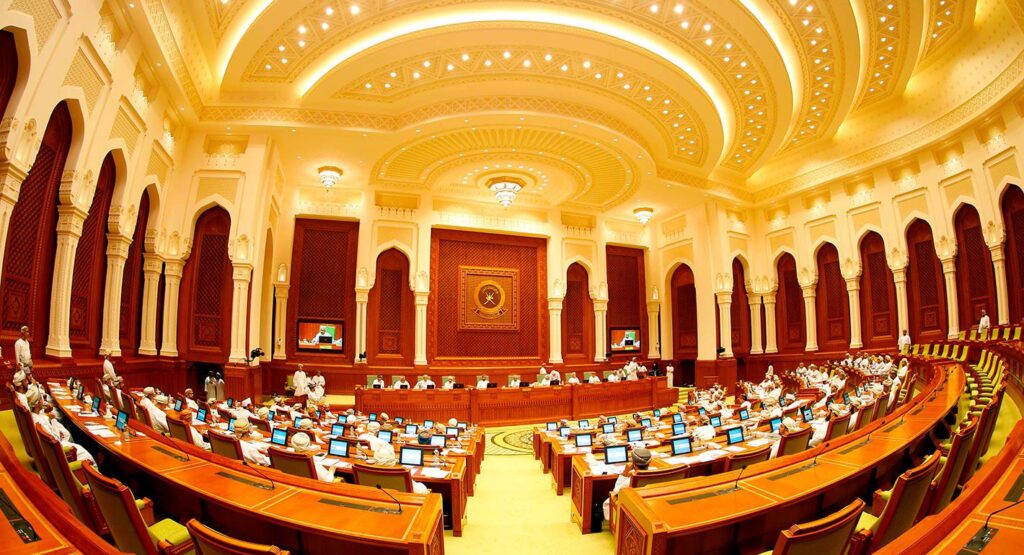In a significant policy shift, Oman has enacted legislation criminalizing any interactions or relations with Israel, signaling a departure from its previously neutral stance in Middle Eastern diplomacy. The decision has drawn attention from regional and international observers, as Oman was once thought to be a potential candidate for joining the Abraham Accords, a series of normalization agreements between Israel and several Arab nations.
Historical Context
Oman has historically maintained a unique position in the Arab world, engaging with various nations, including Israel, without formal diplomatic ties. Unlike some neighboring countries that have remained steadfast in their stance against Israel, Oman has previously engaged in discreet diplomacy with Israeli leaders.
Notably, in 1994, the late Omani Sultan Qaboos Bin Said hosted Israeli Prime Minister Yitzhak Rabin, marking the first visit by an Israeli leader to a Gulf nation. This was seen as a progressive step toward potential normalization. In 1996, Israeli Foreign Minister Shimon Peres visited Oman, and an Israeli trade office was established in Muscat, though it was later closed during the Second Intifada in 2000. More recently, in 2018, Israeli Prime Minister Benjamin Netanyahu visited Oman and met with Sultan Qaboos, reviving speculation about Oman’s possible openness to normalizing ties with Israel.

However, Oman has always balanced its diplomatic relations carefully, positioning itself as a neutral mediator in the region. The country has historically maintained positive relations with Iran, the U.S., and Gulf Cooperation Council (GCC) nations, avoiding direct confrontations or alliances that could disrupt its independent foreign policy.
Legislative Changes
On January 4, 2023, Oman’s parliament voted to criminalize any relations or interactions with “the Zionist entity.” The new law is an expansion of the existing boycott against Israel and includes severe legal consequences for anyone violating the measure.
While the exact details of the legislation remain undisclosed, reports suggest it encompasses a broad spectrum of activities, including economic, cultural, and sports engagements. This means that any form of trade, business cooperation, or even participation in events involving Israel is now punishable under Omani law. The law also reportedly extends to electronic communications, suggesting that even digital interactions with Israeli individuals or institutions could be subject to penalties.
Regional Dynamics and External Pressures
Several factors have influenced Oman’s policy shift, including leadership changes, regional alliances, and growing tensions in the Middle East.
Leadership Transition
The death of Sultan Qaboos in 2020 marked a turning point in Oman’s foreign policy. His successor, Sultan Haitham Bin Tariq, initially signaled continuity in Oman’s neutral approach. However, recent actions suggest that his administration is pivoting toward a more traditional anti-Israel stance, possibly as a response to both internal and external pressures.
Iranian Relations
Oman shares a strategic location near the Strait of Hormuz and has historically played a mediating role between Iran and Western countries. Iran, a staunch opponent of Israel, has long pressured regional allies to avoid normalization. By enforcing a stricter boycott against Israel, Oman may be seeking to strengthen its ties with Iran, particularly at a time when Iran faces its own domestic challenges and tensions with Western nations.

Regional Tensions
The rise of Israel’s new right-wing government, which has implemented controversial policies regarding Palestinian territories, has sparked outrage across the Arab world. Many nations have voiced strong opposition to Israel’s policies, particularly regarding settlement expansions and treatment of Palestinians. Oman’s legislative move aligns with sentiments in other Arab nations that have grown increasingly critical of Israel’s actions.
Implications for Israel-Oman Relations
Oman was once seen as a potential candidate to join the Abraham Accords, following nations like the UAE, Bahrain, Morocco, and Sudan in normalizing relations with Israel. However, this recent legislation signifies a reversal, potentially halting any progress toward formal diplomatic ties.
Despite this, some analysts believe that unofficial relations may persist discreetly. Oman’s leadership may have passed this law as a way to placate regional adversaries while still keeping backchannel communications open with Israel. Similar dynamics have played out in other Arab nations that publicly denounce Israel while maintaining indirect ties through trade or security cooperation.
Broader Regional Impact
Oman’s decision may influence other Gulf Cooperation Council (GCC) countries’ policies toward Israel. While nations like the UAE and Bahrain have embraced normalization, Oman’s stance reflects the complex and varied perspectives within the GCC regarding Israel.
This development could affect regional diplomacy, economic collaborations, and the overall stability of Middle Eastern geopolitics. Oman’s choice to strengthen its boycott could encourage other countries that were hesitant about the Abraham Accords to reconsider their approach to Israel. It may also bolster Palestinian advocacy in the region, reinforcing opposition to Israeli policies.
Furthermore, the move could have economic consequences for Oman itself. As the UAE, Bahrain, and other countries benefit from economic and technological partnerships with Israel, Oman risks isolating itself from potential trade opportunities. However, given Oman’s historical reliance on diverse international partnerships, it is unlikely that this decision will severely impact its economy in the short term.
Conclusion
Oman’s expansion of its Israel boycott marks a pivotal moment in Middle Eastern diplomacy, reflecting shifting alliances and the intricate balance of regional politics. As the situation evolves, the international community will closely monitor the implications for peace efforts, economic partnerships, and the broader geopolitical landscape in the region.
For Israel, this move represents a setback in its efforts to further integrate into the Gulf region. For Oman, it is a strategic realignment that signals a commitment to traditional Arab policies regarding Israel. Ultimately, the long-term impact of this decision will depend on broader regional developments and the evolving political landscape in the Middle East.
Tragic Flash Floods in Oman Claim 17 Lives, Including Schoolchildren


